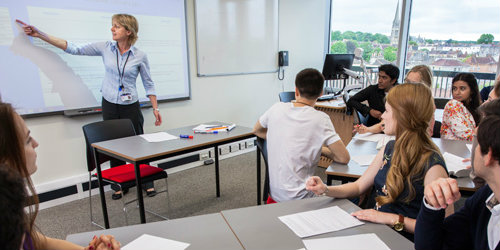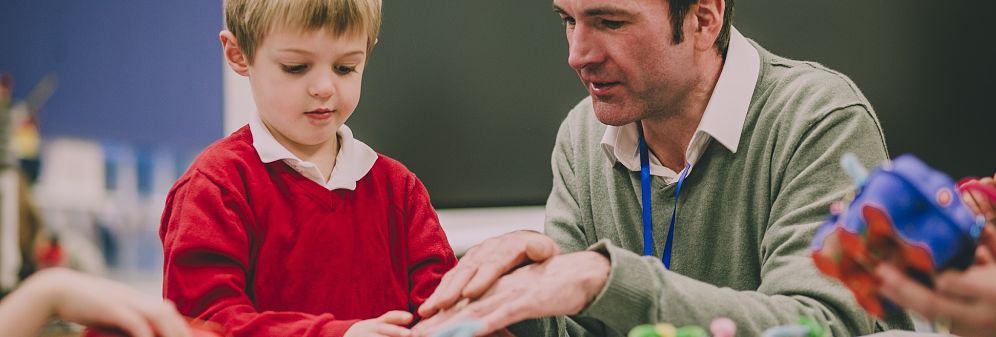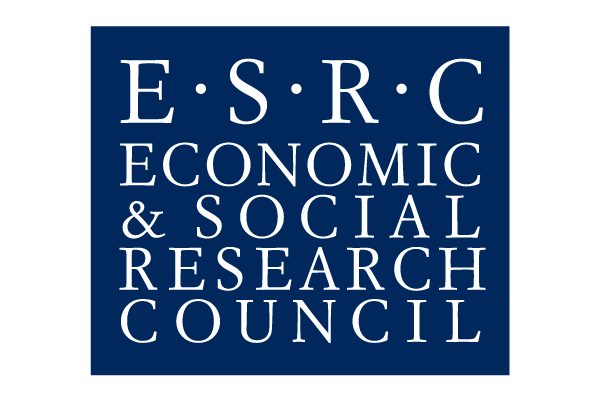Oral language support is key for covid recovery
Covid-19 school closures are threatening children’s oral language skills: but whole school universal language interventions could help.
The challenge
Oral language skills have always mattered, but they matter now more than ever. The Covid-19 pandemic has widened the already persistent ‘language gap’ between disadvantaged students and their peers across all ages, highlighting the importance of school-based language interventions. Support for oral language offers an important means by which we can address the injustices worsened by the pandemic.
Research impact - Spoken language must be at the heart of education catch up in schools
Supporting Spoken Language in the Classroom (SSLiC) is a knowledge exchange programme, originally developed by Dr Ioanna Bakopoulou at UCL institute of Education and continued at the University of Bristol. SSLiC aims to foster a strong language environment, and so provide support for literacy, support for learning and ultimately promote positive academic outcomes for all children in a primary school setting. SSLiC seeks to achieve this aim by supporting practitioners to embed communication in their school’s policy and everyday practice.
Across the academic year 2017-2018, the SSLiC programme was carried out with ten primary schools across London and the South-East. Each school had access to the most up to date research findings, a school self-assessment audit tool, an evidence-based classroom observation tool and received regular support from facilitators with research and school practitioner backgrounds.
The participants in the SSLiC programme implemented a variety of changes in their schools at pupil, practitioner and school levels based on an action plan which was tailored to each school’s priorities and needs. Ultimately, all participants reported that they used the SSLiC programme to raise the profile of the importance of oral language for children’s educational attainment. In the 2019-2020 academic year, five primary schools in Bristol participated in the SSLiC programme as part of an ESRC Impact Award project. Three of these schools have continued with their work since the return to schools in September 2020 following the first national lockdown, recognising an even greater need to take a whole-school approach and enhance children’s oral language skills. The research team and our school partners have co-written Case Studies of their work - SSLiC Case Studies Bristol (PDF, 510kB)
One school partner said of the programme: ‘Having that connection with the University and the research, it was just great. It was just really useful to be able to use all that research evidence in your teaching, otherwise we are just doing teaching in isolation…out there alone. But also during the pandemic, they (SSLiC Bristol Team) were great at helping us change our practices and adapt, drawing us back on to our main aim, our main intent and helping us make our targets actionable and feasible’.
Another added: ‘We were so excited to be part of the SSLiC programme. It was just so clearly in touch with the issues that we face everyday in teaching. It was just very close to what we know our children need. And it was really interesting to see something that commonsensically we know children need but to see the research element of it and see how you can apply all this evidence in our own setting and see the actual impact of your work, it was just really beneficial’.
In the UK, our research has contributed to policy debate and reform with the All Party Parliamentary Group on Oracy that ran an inquiry into the value, impact, and provision of, and access and barriers to oracy (learning to talk and learning through talk) in schools. Released in April 2021, the Final report and recommendations from the Oracy All-Party Parliamentary Group Inquiry which includes both written and oral evidence from our research, calls for a consistent, whole school approach to oral language provision in schools and better support for teachers, a key aim of the SSLiC Programme. Alongside this work, our research team has undertaken a number of local (Bristol Teacherfest) and national engagement activities that have raised public awareness and understanding of the importance of spoken language for children’s learning and long term outcomes and the need to focus our efforts in supporting teachers’ professional development in that area not just for ‘recovery’ but also for ‘building back’ stronger and fairer.
Underpinning research
It is no surprise that children’s development has been hit hard by the Covid-19 pandemic. Children have lost months of being in nursery and school and have been deprived of daily conversations, disrupting opportunities for all children to develop essential oracy skills.
As the UK starts on the road to education recovery, evidence is revealing the major impact the pandemic has had on children’s language and communication skills. Education Endowment Foundation research found that of the 58 primary schools surveyed, 96% were concerned about pupil’s speech and language development, whereas results from the largest survey in schools to date indicate that 1.5 million children are at risk of not being able to speak or understand language at an age-appropriate level. School teachers are concerned that without further support, children at risk will be unable to catch up expressing serious concerns about the fact that the Government is not providing enough support for children to help with their spoken language.
Helping children to speak and understand language should be a core goal in deciding the next steps in the education recovery plan. That means making a long-term commitment to supporting speaking and understanding skills by providing school professionals with professional development and training and having oracy high in every school’s agenda, elements highlighted by research as most effective in developing high-quality universal language provision (Bakopoulou & Vivash, 2018; Dockrell, Bakopoulou et al. 2012).
Key facts
- The ability to communicate effectively is highly predictive of children’s future academic attainment and is critically associated with long term outcomes.
- School professionals do not feel adequately skilled in identifying and supporting language learning needs.
- Children’s language and communication skills have been greatly impacted by the Covid-19 pandemic, lockdowns and school closures.
- Empowering school professionals to support children’s spoken language needs to be at the heart of education catch up in schools.
- The focus of education recovery needs to be on supporting schools to develop high-quality universal language provision, as highlighted by the research evaluating the SSLiC Programme.
Researchers
Non-academic partners
Funder
Related research group
Centre for Psychological Approaches for Studying Education (PASE)
Publications
- Ebbels, S.H., McCartney, E., Slomins, V., Dockrell, J.E., Frazier Norbury, C. (2019). Evidence-based pathways to intervention for children with language disorders. International Journal in Language and Communication Disorders, 54 (1), 3-19.
-
Supporting Spoken Language in the Classroom: Case Studies from Schools in Bristo (PDF, 510kB)
- Speak for Change: Final report and recommendations from the Oracy All-Party Parliamentary Group Inquiry
Date published
January 2022
 Study Education
Study Education
Join us in improving educational environments for future generations


